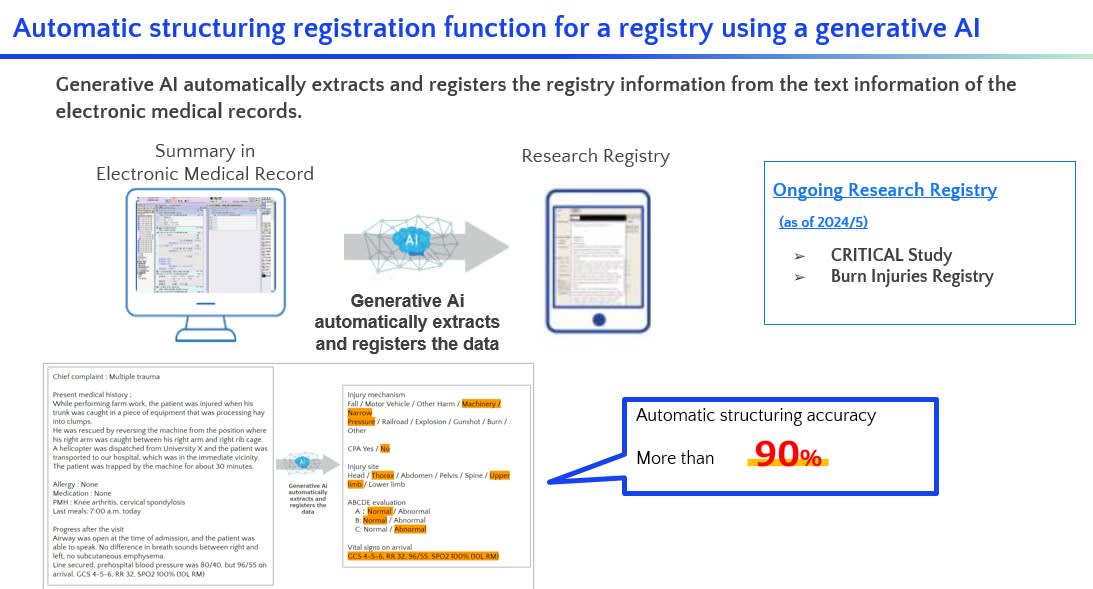2024.05.30
PRESS RELEASETXP Medical developed an automatic registration function for multi-center registries using a generative AI!
In the field of emergency medicine and intensive care in Japan, we have academic multicenter registries such as the Japan Trauma Data Bank, Cardiac Arrest Registry, Burn Injury Registry, Doctor Car/Helicopter Registry, and Japanese Intensive care PAtient Database (JIPAD).
In Japan, EMRs are not usually connected to the Internet, so direct data linking between academic registries and EMR is technically difficult. For the data entry process for the registries, clinical researchers have needed to manually enter each item into a web form while viewing electronic medical records (EMR), which has taken a lot of time for them to complete. Due to this situation, this type of registration work has been imposing a huge workload for those who are working for clinical research in academic institutions such as university hospitals.
TXP Medical Co. Ltd. (hereinafter TXP Medical) has released an automated registration function for academic registries that utilizes generative AI in NEXT Stage ER/ICU, a system for an emergency department and intensive care unit. These systems have been introduced in over 70 large hospitals nationwide. This function generates a QR code which contains patient information from NEXT Stage ER/ICU on desktops where the hospital's electronic medical records run. Capturing this QR code containing the patient information by a tablet or smartphone, registry information is automatically extracted and registered to the EDC system using generative AI.

In the field of emergency medicine and intensive care in Japan, we have academic multicenter registries such as the Japan Trauma Data Bank, Cardiac Arrest Registry, Burn Injury Registry, Doctor Car/Helicopter Registry, and JIPAD.
In Japan, EMRs are not usually connected to the Internet, so direct data linking between academic registries and EMR is technically difficult. For the data entry process for the registries, clinical researchers have needed to manually enter each item into a web form while viewing electronic medical records (EMR), which has taken a lot of time for them to complete. Due to this situation, this type of registration work has been imposing a huge workload for those who are working for clinical research in academic institutions such as university hospitals.
TXP Medical Co. Ltd. (hereinafter TXP Medical) has released an automated registration function for academic registries that utilizes generative AI in NEXT Stage ER/ICU, a system for an emergency department and intensive care unit. These systems have been introduced in over 70 large hospitals nationwide. This function generates a QR code which contains patient information from NEXT Stage ER/ICU on desktops where the hospital's electronic medical records run. Capturing this QR code containing the patient information by a tablet or smartphone, registry information is automatically extracted and registered to the EDC system using generative AI.



